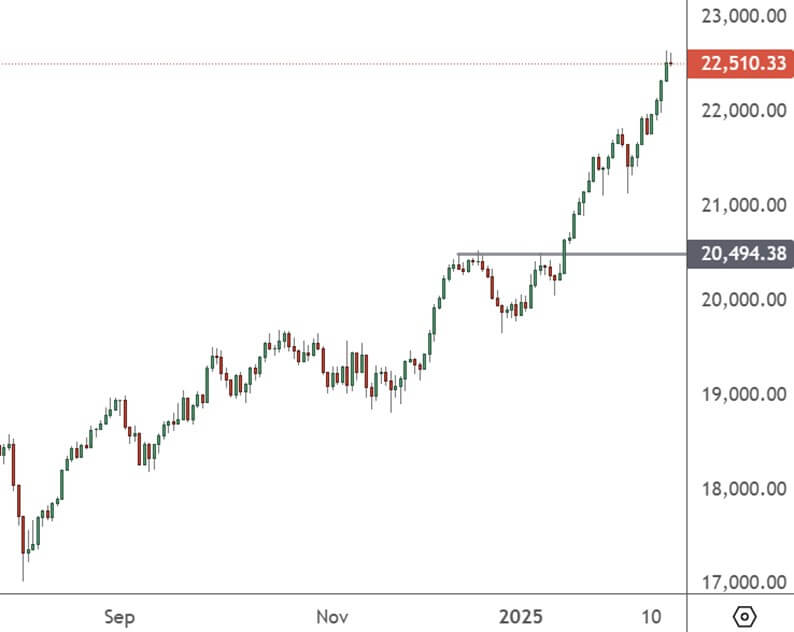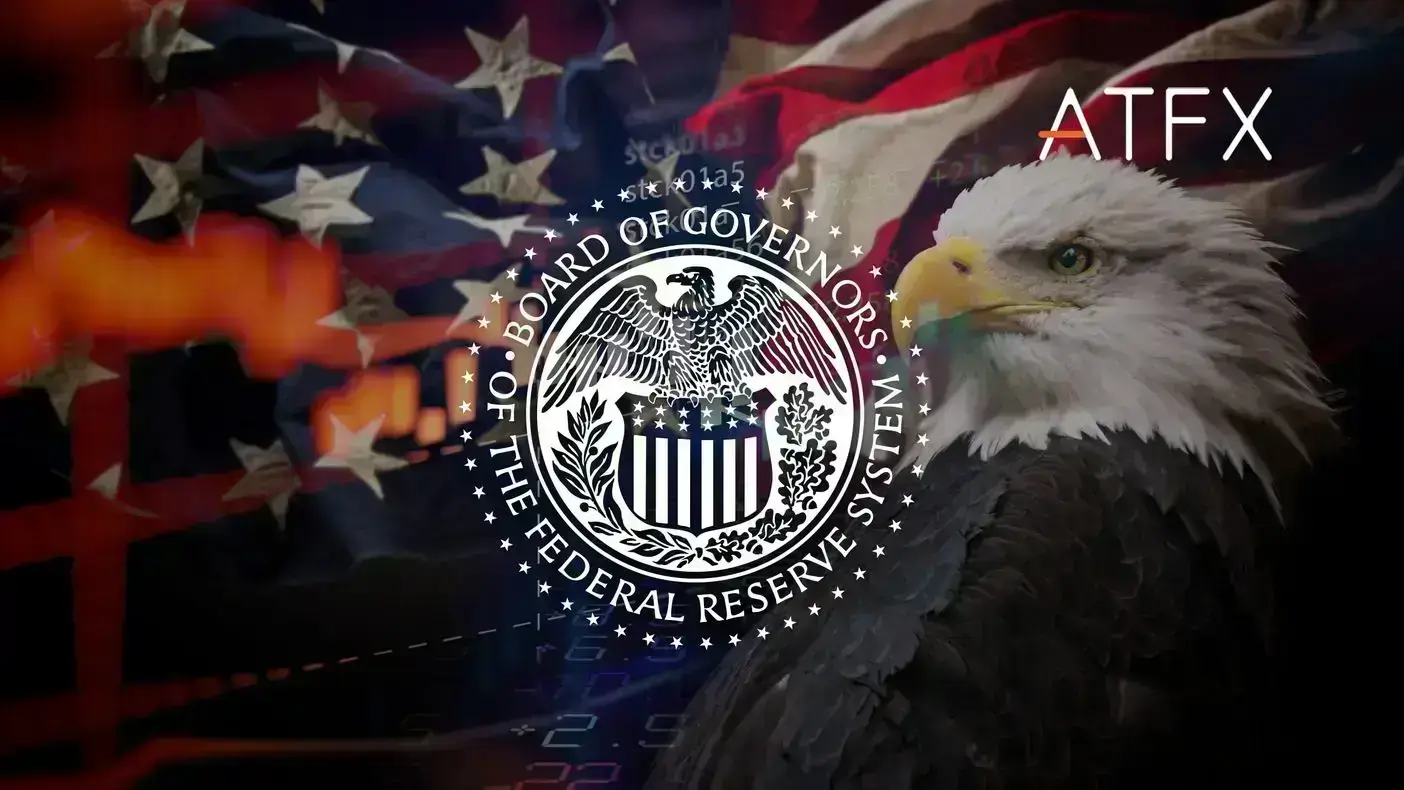The upcoming German election will be a test for the GER 30 index, which has soared recently.

GER 30 – Daily Chart
A potential correction was looming at year-end, but the index has jumped another 2,000 points despite fears over the election.
The German election on 23 February 2025 will be one of the most unpredictable years. The far-right Alternative fur Deutschland (AfD) is polling at record highs, but the centre-right Christian Democratic Union (CDU) is widely expected to win.
The CDU/CSU is running on a business-friendly platform that aims to cut taxes, ease regulations, and modernize Europe’s largest economy. They promise to reduce corporate tax rates from 29.9% to 25%, eliminate the Supply Chain Act, and lower income taxes for lower income workers.
They also want to change work laws, shifting maximum working hours from a daily to a weekly limit, giving more flexibility to workers. Energy policy will be another focus, and the CDU/CSU plans to roll back climate-focused regulations.
Markets almost dismiss the possibility of the AfD entering government, but this could create a market shock if voter turnout surprises the upside. The other problem is that Germany’s constitution requires a two-thirds majority for significant change, and any coalition could require months of talks, which could delay any stimulus for the economy.
There are no high-level economic releases for the German economy this week, and markets will hinge on the election polls. Meanwhile, frontrunner Merz has said he will take action against Elon Musk for his support of the AfD party, which may hit the Tesla gigafactory in Berlin.
The German stock index is at risk if there is an election shock, and it is hard to see why there is such bullishness when the economy is not performing well.


